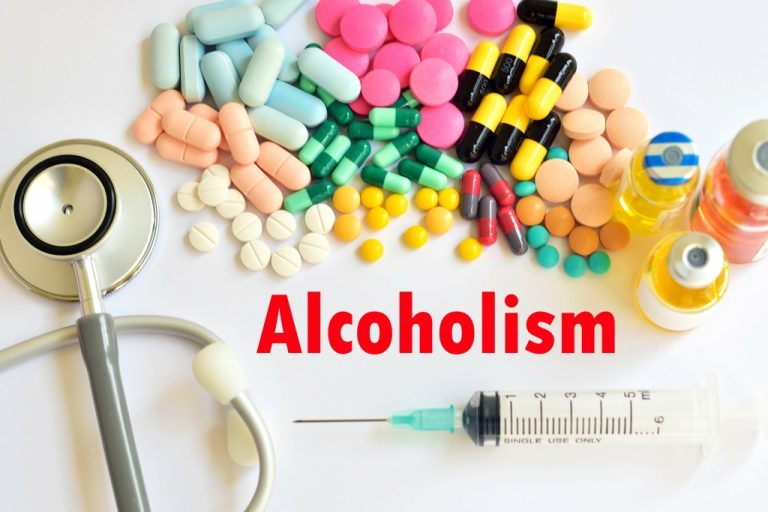How to Flush Alcohol Out of Your System before Breathalyzer, Urine & Pre-Employment Drug Screening
These byproducts are eventually broken down further into water and carbon dioxide for elimination from your body. Yes, stepping outside and getting some fresh air can help wake you up and make you feel more alert, which can help counteract the effects of alcohol. Caffeine can help stimulate your central nervous system and make you feel more alert, which can help counteract the sedative effects of alcohol.
- Alcohol also interferes with the body’s absorption of nutrients, so it is beneficial to eat foods that are high in antioxidants and minerals.
- It also helps to flush out the toxins and by-products of alcohol metabolism that can accumulate in the body.
- Over the next few days, symptoms may gradually subside, but cravings and mood disturbances can persist for weeks or even months.
- The primary benefits of enrolling in treatment are minimizing withdrawal symptoms and preventing complications.
- Drinking too much water too quickly, however, can lead to water poisoning, also known as water intoxication.
What are the benefits of drinking water?
Patients benefit most from a medically supervised detox program that manages withdrawal symptoms like seizure, delirium tremens, and dehydration while protecting long-term health. Exercise also helps digestion and stomach health by stimulating enzyme function, which supports the body during detoxification. Regular movement reduces inflammation, strengthens the root systems of recovery, and helps regulate blood circulation and urine output. Paired with therapy, a balanced diet, and hydration with water or green tea, exercise improves sleep quality, boosts antioxidant defenses, and restores long-term health. The body requires time for the liver and blood to process alcohol out of the system, and therapy helps patients manage the mental health challenges of abstinence.
Common Effects of Alcohol
- If you’ve been drinking recently and need to cleanse your system from alcohol in 24 hours, this article is for you.
- This is especially true for individuals who struggle with alcohol use disorder (AUD).
- It breaks down the alcohol into acetaldehyde, which is then further broken down into acetic acid and finally carbon dioxide and water.
- There’s a bit of truth to the phrase, “sleep it off.” Sleep allows your body to rest and recover.
These conditions can increase the risk of heart failure, heart attacks, and other cardiovascular complications. Reclaim your life from alcohol dependence and reach out to our team today. Dr. Nelson has worked in the behavioral health field for more than 22 years. He has served as a clinical director, clinician, and supervisor for mental health pro- grams in acute, sub-acute, and outpatient facilities, and in primary care. According to the Society for Human Resource Management (SHRM), 57 percent (more than half) of all employers now https://tahmidshopbd.com/2024/12/11/what-is-the-3-fold-disease-of-alcoholism-addiction/ conduct drug tests on people looking to hire into the company. In fact, the survey data found that only about 29 percent of the employers say they do not conduct any employee drug testing.
Methods to Flush Alcohol Out of Your System
Additionally, certain medications and drugs can interfere with the body’s ability to metabolize alcohol. It is important to be aware of any medications that may interact with alcohol and to consult with a doctor before drinking alcohol. Dehydration can make a hangover worse and slow down the process of eliminating alcohol from the body. Drinking plenty of fluids, such as water and electrolyte-rich beverages, can help to rehydrate the body and speed up the process of metabolizing alcohol. It is important to avoid caffeine and sugary drinks, as they can further dehydrate the body. Many insurance plans cover medical detox, therapy, and follow-up care under behavioral health benefits.

Just because apple cider vinegar is ineffective in flushing out alcohol does not mean it is not helpful. According to aforementioned studies, apple cider vinegar does a good job of improving gut health, thereby speeding up the process of recovering from alcohol withdrawal. You may also want to try apple cider vinegar, which has many touted health benefits, such as a boosted immune system, improved skin health, and weight loss. Additionally, apple cider vinegar has been cited to help the body recover from the misuse of alcohol. Below, we will see how apple cider vinegar works and if it is worth including in your recovery plan. Exercise is not only beneficial for maintaining a healthy weight and improving cardiovascular health but also plays a significant role in alcohol detoxification.
Confidant Health: The Support You Need to Reduce Drinking

Incorporating leafy greens into your diet is an excellent way to detox your body. Greens such as spinach, kale, and broccoli are packed with powerful antioxidants and vitamins that can aid in the elimination of toxins and promote liver health. Moreover, detoxification can also have positive effects on your mental and emotional well-being. Breaking free from alcohol dependency can improve your mood, reduce anxiety and depression, and enhance your overall quality of life. It allows you to regain control over your life and make healthier choices, paving the way for a brighter future. The alcohol detox process generally begins within hours of the last drink and can last several days.
How Long Does Detox Take?
Getting enough rest is also crucial for the body to recover from alcohol consumption. Rest days without alcohol allow the liver to process alcohol metabolites more efficiently. Lastly, engaging in exercise that involves sweating can assist in the removal of alcohol and toxins from the body. Many people wonder if drinking water can effectively flush out alcohol from the body. While water is essential for overall health and hydration, its ability to remove alcohol from the system is limited. Water can only assist in the flushing process once the liver has metabolized all the alcohol in the body.
Does drinking coffee or water eliminate alcohol faster?
Drinking water, avoiding binge drinking, and working with a dietitian can improve digestion, reduce dehydration, and promote long-term health. One of the most common questions regarding alcohol consumption is how long the effects of alcohol linger in the body. The duration can vary based on several factors, including individual characteristics and the type of alcohol consumed. ” accurately, it’s essential to understand the alcohol detection timeline and the process of alcohol metabolism. Alcohol detoxification can help improve your overall health and well-being, allowing you to start fresh and live a healthier, more fulfilling life.
A graduate of Texas Tech University and the University of Cincinnati, Trent is fervently dedicated to providing evidence-based, compassionate care to those battling addiction. He emphasizes a holistic, patient-centered approach and stays updated on the latest in addiction research. Metabolizing alcohol is a complex process and most ranges are “averages” rather than how long it will specifically take you to metabolize that alcohol. Discover what to take for energy with proven lifestyle heroin addiction strategies and AMMD supplements that support lasting stamina, focus, and daily vitality.

- They may be hoping to lower their BAC to below the legal limit before driving, or they might be trying to rid themselves of a hangover before heading to work the next morning.
- Exercise increases the heart rate, which helps to increase the rate of blood flow throughout the body.
- Before diving into the myths and truths, it’s important to understand how alcohol is metabolized.
- Supporting the liver involves hydration with water, antioxidant-rich foods, and vitamins that reduce inflammation.
- When your body is well-rested, it is more efficient at eliminating toxins.
While sweating can release small amounts of alcohol, it is not a reliable or efficient method for complete detoxification. This is due to differences in body composition, enzyme activity, and hormone levels. However, the rate and duration of metabolism vary from beverage to another according to the amount of alcohol in each beverage. For example, a small shot of liquor takes 1 hour to get out of the body while a large glass of wine takes 3 hours. When it comes to alcohol metabolism, the beta 3 class I ADH version of an alcohol enzyme helps the liver metabolize it much faster. This also explains why chronic drinkers are better able to tolerate the effects of alcohol compared to someone drinking for the first time.
Following these steps can help you achieve your goal of detoxifying your system of alcohol in 24 hours. Sweating does not reduce the amount of alcohol in the bloodstream, so it is not an effective way to reduce the risk of experiencing a hangover. Sweating can help to detoxify the what removes alcohol from the body body by removing toxins, including alcohol, from the body. The sweat carries out some of the alcohol from the body, but it is not an effective way to remove alcohol from the body.
